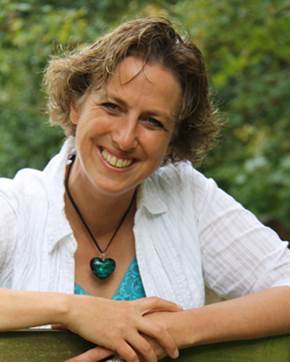Gill Lewis, thoughts on conflict
Published on: 7 Tachwedd 2016 Author: Gill Lewis
Gorilla Dawn featured as one of our Bookbuzz books in 2016. Author Gill Lewis gives us her thoughts on conflict.

Any writer will tell you that within a story there needs to be conflict. No one wants to read about a perfectly perfect protagonist having a perfectly happy life and living happily ever after. We want to follow one who is presented with challenges and to see how they respond to them, and how they try to overcome them.
Maybe we crave conflict in fiction in order to understand how to deal with it in our own lives. Many of us avoid conflict where possible and choose the path of least resistance. At school we are conditioned into obedience and to respect our elders and authority rule. Rebellion is a dangerous notion. It comes with the threat of punishment and isolation, and that leads to the overwhelming sense of disempowerment.
Disempowerment allows the control of one person or body of people over another.
As a child I felt powerless. I accepted it. I didn't question it.
I wish I had.
I grew up in the suburbs of a city, where, at the bottom of our garden, my friends and I roamed a scrubby patch of council-owned land that we called The Woods. It seemed as big as Pooh's Hundred Acre Wood, yet in truth it was probably less than half an acre. But it was our place, a piece of rough ground of silver birch, sycamore, hazel and tangled undergrowth. We made dens, climbed trees and played a million games.
Foxes and owls lived in those woods too. It was our wild. Then one day the notice came for its destruction, and we just accepted this. We stood by and mutely watched the bulldozers flatten the trees, burn the scrub and take away our wild. Foxes no longer padded through our garden. Where there had once been owl-song, there was silence.
I wish I had known that I could have stood up and fought for our wild place.
Maybe the children I write about now reflect the type of child I wish I had been: sure of my own mind and brave enough to stand up for what I believed.
In Gorilla Dawn, the main character Imara feels powerless. We meet her at the beginning of the story in the forests of the Democratic Republic of Congo. She is a captive in an armed gang, a girl with a scar across her face and no memory of her past. She wrestles with inner conflict, the demon inside of her. The armed gang is destroying the forest in pursuit of minerals found beneath the earth, minerals that are needed for the manufacture of our mobile phones and electronic goods. These minerals, such as tungsten, tantalum, gold and tin, are known as conflict minerals because the mining of them results in the terrorization and displacement of local communities and destruction of the forests.
Imara is scared. To survive, she keeps her head down and does what she is told, until she comes to a tipping point. A young gorilla is given into her care. Imara knows that the future of the gorilla depends upon her. To stay safe, she could give it up for captivity or she could choose to risk everything and help reunite the gorilla baby with its family.
The tipping point is where the story shifts. It is the point where the protagonist could walk away or take up the challenge. It is the pivotal moment where the story could end very differently depending upon the path taken.
You hope in your hearts the protagonist will take up the challenge despite the dangers ahead. You hope they will dig deep for courage and fight for what is right and not follow the path of least resistance.
We all face challenges at pivotal moments in our lives. More often than not, these are scary times when we need to make decisions and to stand up for something, someone or ourselves.
Books help us to reflect upon these moments, to play them out in our heads, to imagine what might happen in our lives depending upon the path we choose. Books can become a beam of light in the darkness, helping to show us the way.
We are the protagonists in our own stories.
Books are our guide.
And there may come a time when, as Dumbledore says, 'we must choose between doing what is easy and what is right.'





